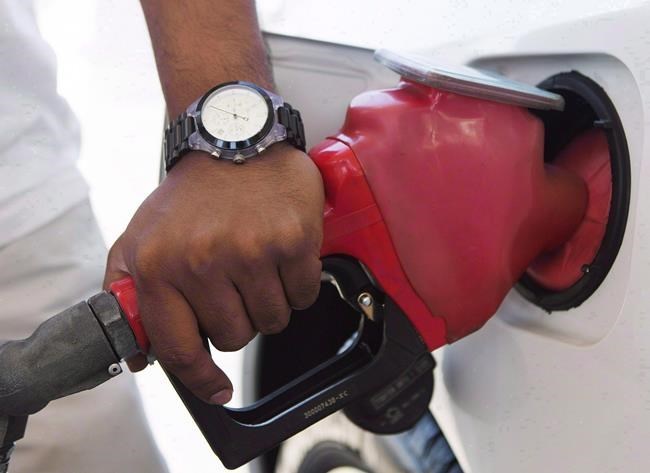Experts say shifting factors including wildfires in Alberta, a slowing economy and potential pressures on supply will all have an effect on gas prices as the long weekend heralds the start of the summer.
“This weekend is the kickoff for summer driving season in Canada,” said Colin Cieszynski, chief market strategist at SIA Wealth Management.
This period is usually characterized by higher demand for gas as people go on more road trips and take their motorcycles and sports carts out of hibernation, he said.
“It's not unusual to see gas prices go up and down around weekends, and especially long weekends.”
However, the price of crude has been drifting for a while, said Cieszynski, with concerns over demand while the economy muddles along in the face of higher interest rates.
“It boils down to a question of supply and demand," said Roger McKnight, chief petroleum analyst at En-Pro International.
"It's also a question of inflation and recession and how that's intimidating demand,” he said.
On the supply side, there are some pressures, said McKnight, with U.S. inventories down, especially for heating oil, jet fuel, and diesel fuel.
Demand for all types of gas, meanwhile, is up — especially for jet fuel, he said, indicating lots of interest in travelling outside the country.
“We have a situation here where supply is tight, and falling, demand is up and rising,” said McKnight.
That means prices will likely be higher for the next couple of months, perhaps cresting US$80, he said.
Anecdotally, prices at the pump have gone up ahead of the long weekend, said Brianne Gardner, senior wealth manager of Velocity Investment Partners at Raymond James Ltd.
Prices often jump up on big news, such as the fires currently ravaging parts of Alberta and forcing oil and gas companies to shut in production, said Gardner. The same thing happened in 2016 with Fort McMurray, though the current amount of oil being curtailed per day is significantly less than it was during that disaster, she said.
Canadian crude normally trades at a discount to West Texas Intermediate, but the gap is the tightest it’s been in a while due to the fires, Gardner said.
Though higher prices from the current fires will likely be a shorter term effect, the longer the fires and production shutdowns go on, the longer elevated prices would last, Gardner said. She noted that this is just the beginning of a season often characterized by wildfires, meaning further disruptions could be ahead.
Recent news that the U.S. government plans to refill the Strategic Petroleum Reserve is good in the longer term, but will drive inventories lower in the shorter term and deliver higher prices at the pump, said McKnight.
But Cieszynski thinks the government won’t be in a hurry to fill up the strategic reserve if prices start to rise too much.
“I don't think they would want to refill the strategic reserve at the cost of running up the price of oil,” he said.
The OPEC oil cartel will continue to be a factor in prices as well, as Saudi Arabia needs oil to be around US$80 a barrel, said McKnight.
Much was made about an anticipated rise in demand for oil from China as its economy reopened following strict COVID-19 measures, but that increase never happened.
But experts say that doesn’t mean it couldn’t still play a role in the coming months.
If demand from China does bounce back, Cieszynski said that would be the “number one factor” that would drive up gas prices. But otherwise, he doesn’t foresee big swings coming.
“It just seems like for the moment, unless there's some kind of surprise, or some kind of external event like China's economy takes off, you're just kind of sitting in this range,” he said.
“There are a lot of moving parts” impacting gas prices in the coming months, said Gardner. With supply pressures, the floor of the range oil has been trading in — around US$70 — seems set, but the ceiling of that range has yet to be determined, she said.
Despite worries about a potential recession as the economy slows, consumer demand has been strong, said Gardner.
This report by The Canadian Press was first published May 19, 2023.
Rosa Saba, The Canadian Press


